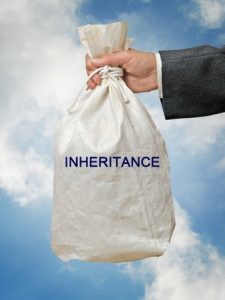Distributing Estate Assets Safely in Gloucester County, NJ
Posted on Fri Oct 3, 2014, on Probate and Estate Administration
From our “Ask a Question” Mailbag: Distributing Assets Safely in Gloucester County, New Jersey
Most Recently Updated July 7, 2018.
“I am the executor of my mother’s estate in Gloucester County, New Jersey. How do I know when it’s safe to distribute the assets of an estate?”
What does “Distributing Assets Safely in Gloucester County” exactly mean?
As the executor of an estate, that person is a fiduciary, and owes a duty to the beneficiaries. The executor also is the representative responsible to satisfy all valid estate debts prior to making distributions. Creditors include any taxes due, such as the mother’s final income tax return and the New Jersey Estate Tax return.
So, there are two groups of people who can hold the executor responsible for actions: creditors and beneficiaries.
Creditors:
Creditors have nine months from the date of death to file a claim against the estate. The executor is responsible to file any necessary tax returns and pay taxes due. If the executor has received any claim from a creditor, then it must be addressed. If the executor distributes estate assets without paying any taxes due or if a creditor claim that the executor had notice of is deed valid, then the creditor can collect the debt from the executor.
Beneficiaries:
Prior to distributing any assets to a beneficiary, the executor should have their Probate Attorney have them sign a settlement agreement. This settlement agreement should release the executor from any liability to the beneficiary and should obligate the beneficiary to return assets later to satisfy a valid creditor’s claim.
What is the final step?
Once the executor has addressed all known creditors and obtained releases from all beneficiaries, they can safely distribute the estate assets. Even with all these precautions, I always advise executors to hold back some estate funds just in case. If the IRS decides that back taxes are due, it is much easier for the executor to write a check from the reserve fund than to contact all the beneficiaries and have them chip in to pay the bill. Once enough time has passed, what remains of this reserve is then distributed out to the beneficiaries.
More Probate Questions?
Distributing assets safely in Gloucester County is only part of the overall probate process. By all means, if you wish to learn more, please read my more detailed article, The Probate Process All You Need to Know.
In Conclusion: Distributing assets safely in Gloucester County, NJ
I hope that this article was helpful in explaining key factors in distributing assets safely in Gloucester County. Further, I included links to even more detailed information on my website. Therefore, please contact me and let me know how I did. Certainly, your comments and questions are welcome!
Let our Probate Lawyers help walk you through what can be a confusing process. To begin with, call to speak to one of our experienced Probate Attorneys. By all means, our lawyers are ready to answer your questions. In fact, feel free to contact our office for a free consultation. Ultimately our goal is to make the process as painless as possible!
Wills, Trusts, Probate, and Estate Litigation, It’s All We Do
Peter Klenk, Probate Lawyer
Tags:
Administrator, Estate Administration, Gloucester County, New Jersey, Probate, Probate Attorney, Probate Lawyer






